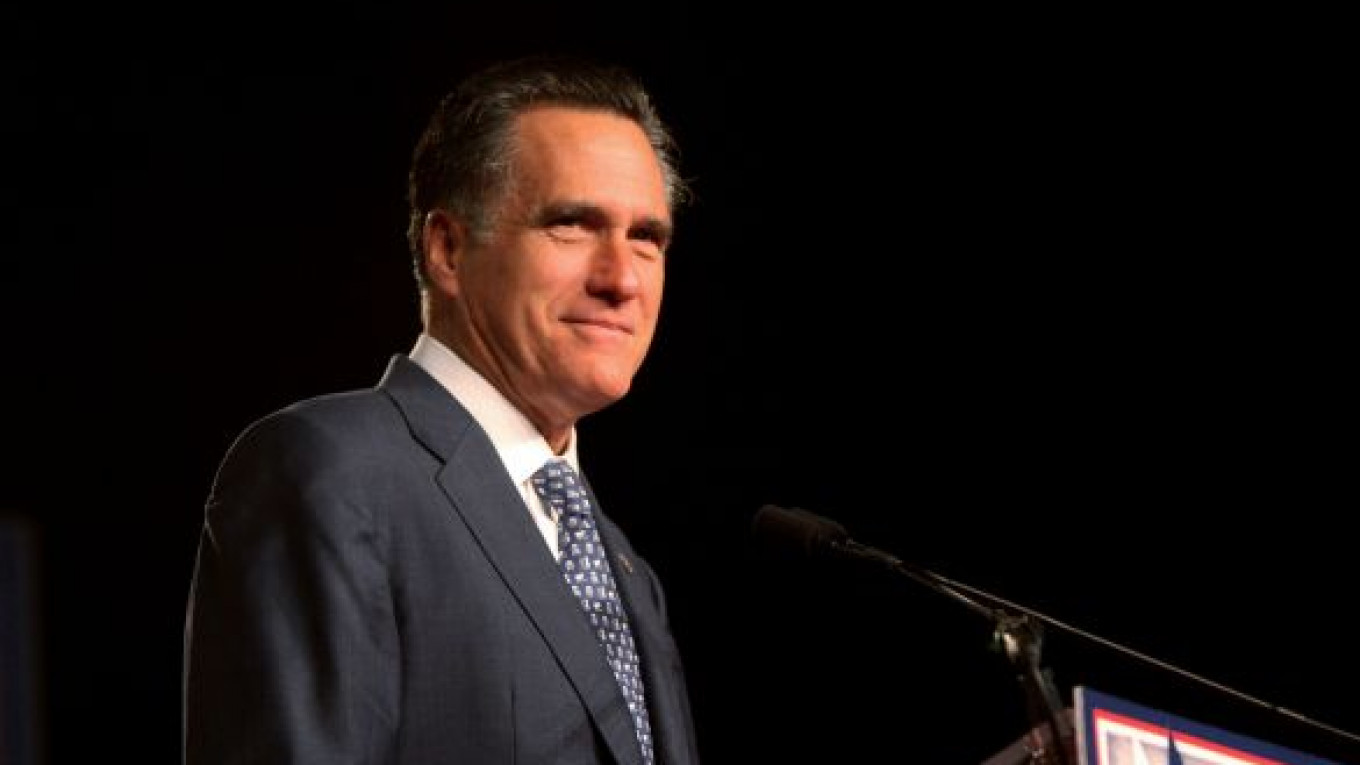When President Vladimir Putin in a recent interview to RT state television said a few nice words about U.S. President Barack Obama, conservatives in the United States promptly declared that he had endorsed Obama in the U.S. presidential election in November.
The U.S. presidential race is extremely close, and Republicans are pouncing on every opportunity to criticize Obama. Putin's name is now mud in most Western countries, so any support for Obama would be seen by many as a negative. Indeed, at first blush, Obama would appear more acceptable to Putin than his rival, Mitt Romney, who has labeled Russia the United States' No. 1 geopolitical foe and has promised a more muscular Russian policy if he is elected.
Moreover, Romney has unveiled an energy plan that aims to make North America self-sufficient in oil by 2020. The plan, which epitomizes the slogan of 2008 Republican vice presidential candidate Sarah Palin, "drill, baby, drill," will open some federal lands for drilling, ease restrictions on oil production in some national parks and even wildlife preserves, and stimulate offshore exploration. Incentives will be given to energy companies to produce oil from shale, import Canadian shale-sand oil and invest in more efficient oil production in Mexico.
To achieve self-sufficiency, the United States, Canada and Mexico would have to boost crude production by 7 million to 9 million barrels per day, or up to 10 percent of current worldwide output. This increase would lower oil prices across the board, dealing Russia a major economic blow at a time when the country already faces falling prices and stiff competition in global markets for natural gas.
In reality, however, Romney's energy plan is a godsend for the Putin administration since it virtually guarantees very high global oil prices in the foreseeable future. All those drilling initiatives proposed by Romney are costly. Canadian shale sands were not considered oil reserves until about 2005, when world oil prices rose sufficiently to make extraction economical. Offshore drilling is equally expensive, and safe production in national parks will also require massive investment. For Romney's plan to work, oil prices will need to stay at their current levels.
This is why Romney's energy plan says nothing about energy efficiency or renewable energy sources. On the contrary, Romney has criticized wind power by quipping that a turbine couldn't be fitted onto a car roof. He has been equally dismissive of the Obama administration's requirement for U.S. automakers to double fuel efficiency by 2025, characterizing it as a heavy-handed government interference with private enterprise.
Pumping more oil without restraining its use is a dead-end project. Soviet economic history demonstrates how huge investment in oil production can, quite literally, go up in smoke year after year, as oil was burned extremely ineffectively in the Soviet Union. At the same time, energy conservation technology permanently reduces consumption and increases efficiency while putting downward pressure on energy prices. The United States consumes about 20 percent of all oil produced in the world, and nearly half of it is burned in cars. Doubling fuel efficiency standards would permanently save about 4 million barrels per day.
Alternative energy technologies, once developed, are here to stay. In Germany, wind is already a major source of power. Obama is no radical environmentalist, but he will continue to support both renewable energy and energy efficiency. Therefore, he is a far more dangerous candidate for the stability of the Putin regime than his Republican rival.
Alexei Bayer, a native Muscovite, is a New York-based economist.
Related articles:
A Message from The Moscow Times:
Dear readers,
We are facing unprecedented challenges. Russia's Prosecutor General's Office has designated The Moscow Times as an "undesirable" organization, criminalizing our work and putting our staff at risk of prosecution. This follows our earlier unjust labeling as a "foreign agent."
These actions are direct attempts to silence independent journalism in Russia. The authorities claim our work "discredits the decisions of the Russian leadership." We see things differently: we strive to provide accurate, unbiased reporting on Russia.
We, the journalists of The Moscow Times, refuse to be silenced. But to continue our work, we need your help.
Your support, no matter how small, makes a world of difference. If you can, please support us monthly starting from just $2. It's quick to set up, and every contribution makes a significant impact.
By supporting The Moscow Times, you're defending open, independent journalism in the face of repression. Thank you for standing with us.
Remind me later.


